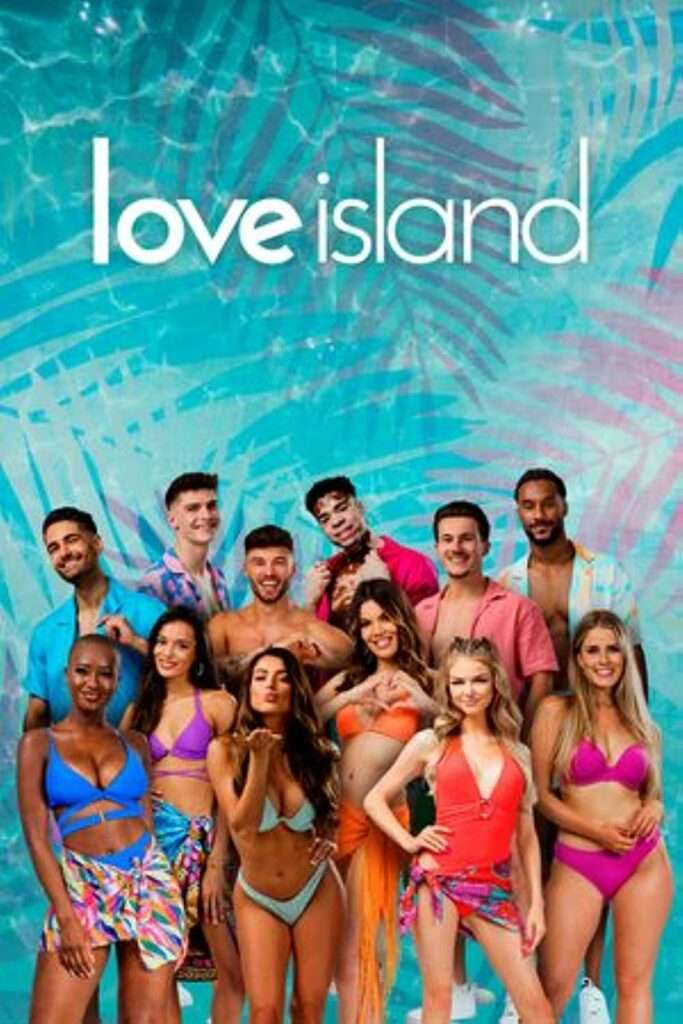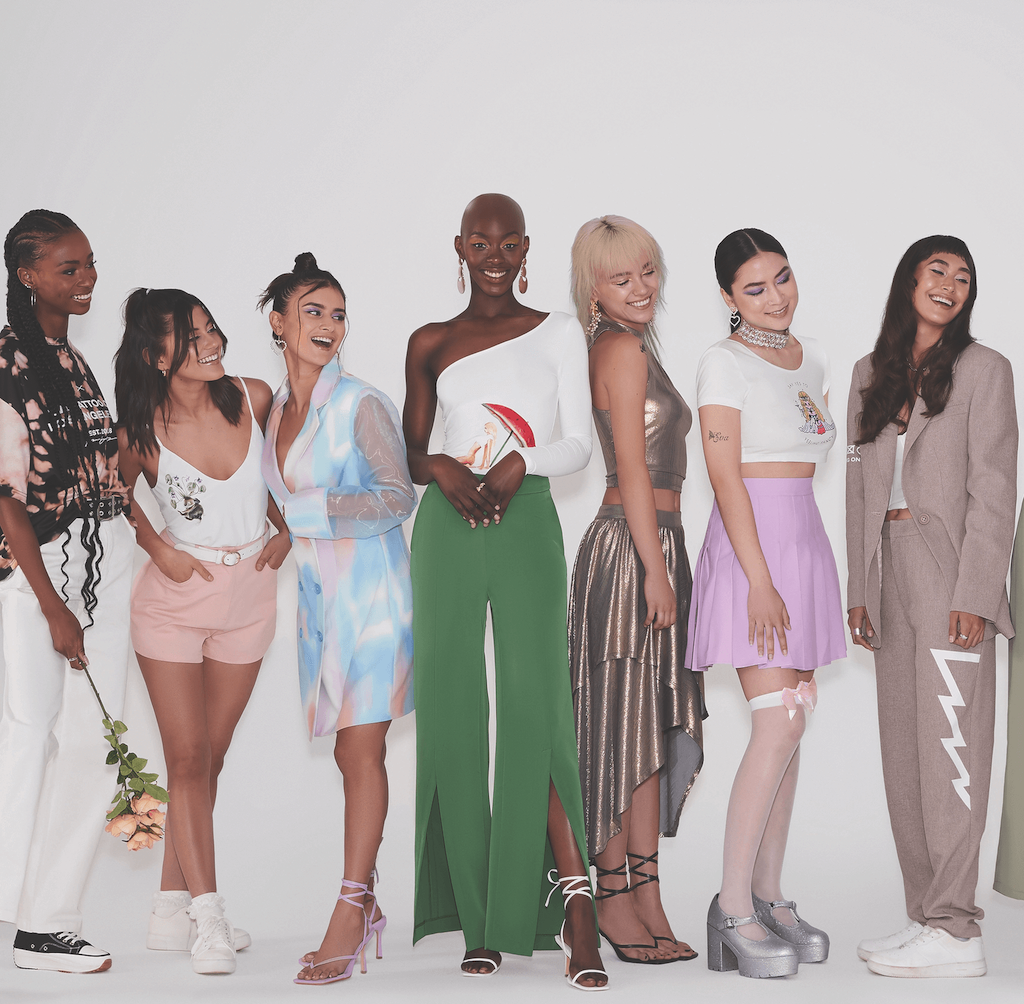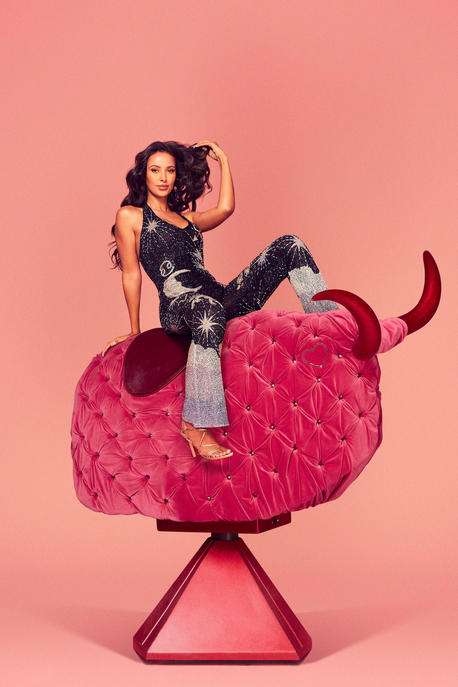From its main sponsors to the deals its biggest stars strike up when they leave the villa, in the past, Love Island has been infamous for its mutually beneficial relationship with fast fashion. But is that changing?
In the last few years, Love Island has gone global. The show’s U.K. version is watched by millions of Brits, but it’s also popular in the U.S. too (even if the slang doesn’t always translate across the Atlantic). But this extensive influence comes with responsibility, not just to its viewers, but also to the environment.
It has worked with some of the industry’s biggest brands, like I Saw It First and Missguided. And some of its most successful islanders, like Molly Mae Hague and Gemma Owen, have gone on to make millions from working with Pretty Little Thing.
But to put it bluntly, fast fashion is an environmental nightmare. For one, most of the clothes are made with polyester, a plastic-based fabric that doesn’t biodegrade. But one of the biggest issues is that all fast fashion brands are designed to operate on a cycle of overproduction and overconsumption, which results in a heck of a lot of waste. Globally, 92 million tonnes of clothing waste hits landfill every year.

But in 2022, Love Island made a groundbreaking move and decided to change its ways.
By signing a sponsorship deal with eBay, it sent a very clear message: fast fashion is out and pre-loved is in. But has this actually made any difference to the way young people shop? After all, a large percentage of those who watch the dating show are members of Gen-Z, a consumer group notorious for loving fast fashion.
Gen Z and fast fashion
Of the more than 3.4 million people who tuned into Love Island so far this season, most will be aged between 16 and 34. That’s a big overlap with the target audience for fast fashion, which sits at around 18 to 24.
It’s not difficult to understand why young people love brands like Shein, Pretty Little Thing, and Cider so much. At this age, their disposable income is low, but their appetite for trends is high. And at the time of writing, Shein is holding a flash sale, where the cheapest clothing item is a bandana t-shirt for £1.75. That’s less than a Costa Coffee.
But a key problem is that buying an item for such a low price doesn’t naturally instill any sense of value.
According to YPulse, more than half of those aged 18 to 39 have bought an outfit just to wear it for one social media post. After that, they’re back online looking for another deal — which is easy, because Shein adds, on average, around 6,000 new styles a day. That’s more than 2 million new styles every year, most of which will end up in the trash.
Can Love Island really move the needle and reduce all of this waste?
Our relationship with fast fashion needs to change, and quickly. But it’s not that young people aren’t open to being sustainable in their consumer choices. Paradoxically, they’re also more likely than any other generation to care about the planet. Research by Deloitte shows that, in general, they’re adopting more sustainable behaviors than anyone else.
One main issue is their constant drive to stay fashionable. “Young people have this feeling of complexity and ambiguity related to sustainability,” Malthe Overgaard, a researcher who has studied young people’s buying habits, told The Guardian. “They all agreed that they thought of themselves as conscious consumers, but on the other hand, they were incentivized to buy more and consume more because of the need to stay trendy.”

Social media, of course, fuels trends, and some of its biggest influencers were, in fact, produced by Love Island. So as the latter changes its ways, is it rubbing off on viewers?
Well, it turns out, statistics are actually extremely positive. While her peers opted for fast fashion mega deals, one of last year’s finalists, Tasha Ghouri, who has more than 1.5 million followers on Instagram, elected to become an eBay pre-loved ambassador after she left the show.
And just recently, eBay reported that compared with the last series, searches for “pre-loved fashion” on its site have increased by more than 1400 percent. Viewers are looking for brands Ralph Lauren, Nike, Purple Reiss, and House of CB, all of which have been worn by this year’s Islanders. In fact, Nike has received 1.04 searches per minute since this series began.
“Interest has grown almost organically,” Phil Holdgate, head of production sustainability at ITV, the channel that produces Love Island in the UK, told IBC365. “Some of the feedback we had was about the way contestants talked about their outfits last season and how they might mix and match items or borrow each other’s clothing, which fits into the wider conversation about a circular economy.”

According to Holdgate, when it comes to influencing young people’s habits, ultimately the answer is to show, and not tell.
After all, young consumers of today are used to hearing negative stories about the climate crisis and being told how to act and how to behave. “It’s integrated very subtly in a way that I think is far more effective than over-emphasizing it,” he added. “It’s just there as part of the show normalizing good behaviors.”
After this season comes to a close, Love Island will air again in the U.K. in the summer, and countries like the U.S. and Australia also have their own spin-offs. If all are sponsored by pre-loved, it begs the question, could reality TV end up really playing a significant role in the demise of fast fashion?
Related on Ethos:


